I am a big fan of intersectionality.
If that doesn't mean anything to you, then don't worry - it didn't to me until quite recently. 'Intersectionality' is feminist jargon for 'all of us - all groups of society - we ALL need to work together to achieve equality'. As somebody who identifies as female, as queer, as crippled and mental, as well as being white, cisgendered and middle class it should be obvious why this simple, (yet oft misinterpreted) idea is so important to me. Here is an excellent drawing by http://miriamdobson.wordpress.com to aid explanation.
I love analogies, and I love drawings, so I thought I'd take the polygon metaphor from Miriam's blog and develop it to explain another part of feminism, which I initially struggled to grasp - privilege.
You are probably familiar with the basic definition of the word 'privilege'.
A special right, advantage, or immunity granted or available only to one person or group of people.
In feminism, it is used extensively to refer to members of oppressed and liberated social groups. This doesn't just mean wealthy as opposed to poor, but also male as opposed to female, white as opposed to black, and countless others. As explained by the above, one can be a member of a single oppressed group as well as many liberated groups, or of many oppressed groups, or solely of liberated groups. One might speak of lacking 'straight privilege' when they feel obliged to come out as gay, for example, while acknowledging the privilege they have of being read as the gender with which they identify.
I want to focus on two other well known social groups - the 'oppressed' triangles, and the 'liberated' squares, portrayed here on a 'Scale of Oppression'. Note the variety of colours and sized of shapes, even within the groups. Note also, my awesome paint skills.
The shapes on the right have 'square privilege'; the same privilege that the shapes on the left lack. Squares have more choice in life, are judged as individuals rather than as part of a group, and are in more positions of power. As a result, half of all polygons are limited merely because they have three points instead of four. Triangulars want this to change. Squares don't really realise they have privilege until it is pointed out to them by the triangles who have noticed how unfair it is. Heck, even some triangles don't notice how unfair it is.
At the point where Triangulars tells squares to "check" their "privilege", it's quite normal for squares to feel like they are being a accused of being deliberately oppressive. This isn't the intention of the Triangulars. Triangulars don't want squares to feel guilty or defensive. All triangles want is for squares to acknowledge that an imbalance exists, and to help them address this problem.
Unfortunately, some squares get scared that triangles will take away their privileges, and so set up 'Squarist' groups. It can be hard being a square too, they think. Does that mean squares are equally as oppressed as triangles? Not really. Oppression can only work in one direction - the scales can't be underbalanced on BOTH sides - but the negative effects of Point-ism are felt by all polygons. What Squarists don't understand is that Triangulars are inevitably working towards the rights of squares as well.
Eventually, Triangulars make enough shapes aware of the Scale of Oppression. More triangles become Triangulars, and more squares want to support them. Such squares become 'allies'. It's important that both Triangulars and allies continue to "check" their "privilege", even if they use it to the advantage of the triangles, otherwise the picture can look a bit like this.
From left to right: a relatively unprivileged pale blue square has "triangle" used as an insult against it; a yellow triangle isn't given help to ascend the upwards slope against oppression; a privileged green square only cares about triangles who are relatively privileged in being green; a lucky triangle pulls the step ladder away from other triangles as soon as it gets given the chance to mingle with squares; a yellow square decides that all squares are bad and need bringing down; and (if you look really closely) a white triangle masquerades pretends to have four sides in order to get the same privileges as a square.
There are alternatives to these approaches. One is called 'positive-discrimination', in which the ratio of triangles to squares in any environment is made to be representative of the percentages of triangles and squares in the average population. This ensures that the Scale is always more of less balanced, even if somewhat artificially.
Positive discrimination is by no means an ideal solution. There is no single, ideal solution. But by working together, hopefully one day the many pointed shapes of polygon land can smash the Scale of Oppression once and for all.
Yours point-lessly,
BT
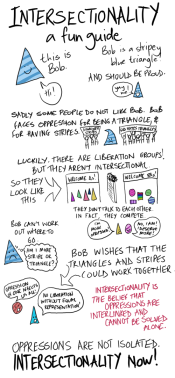
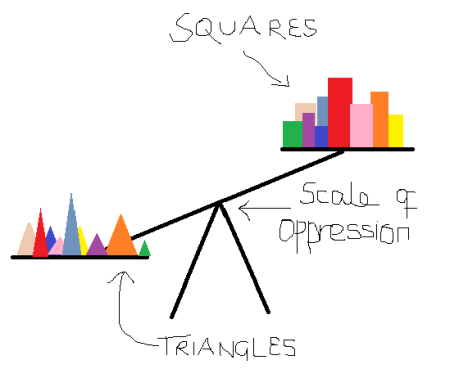
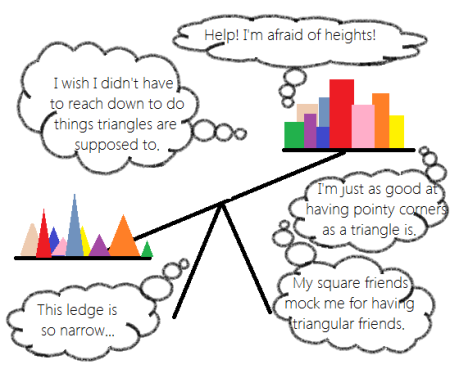
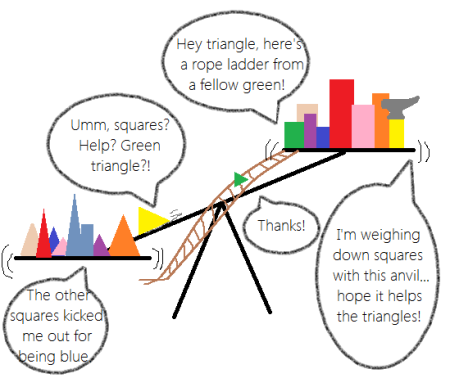


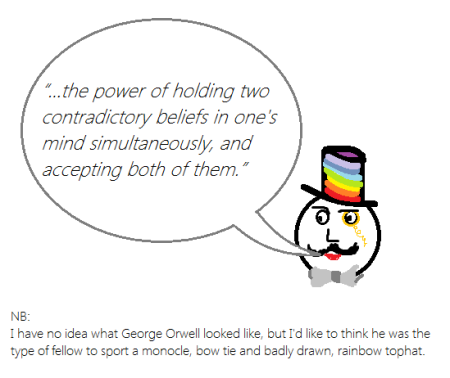

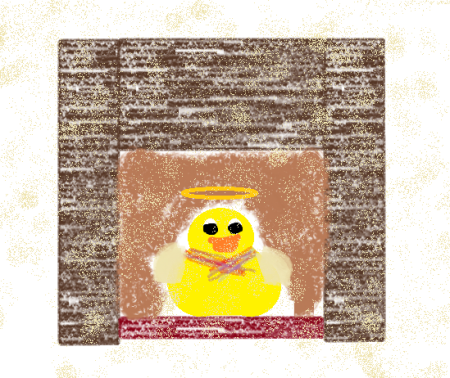


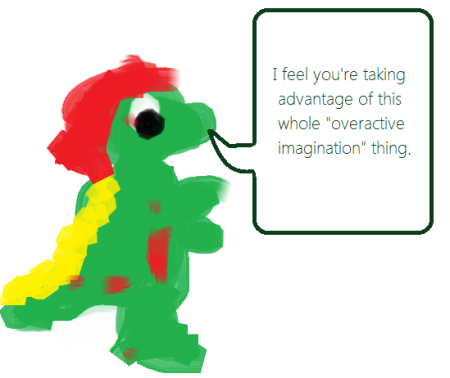
.png)


.png)












.png)










.png)
